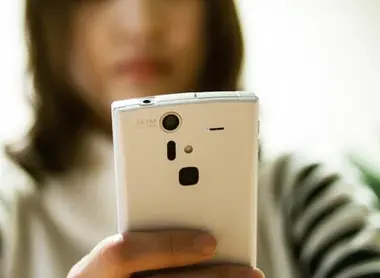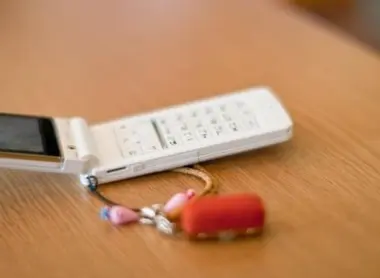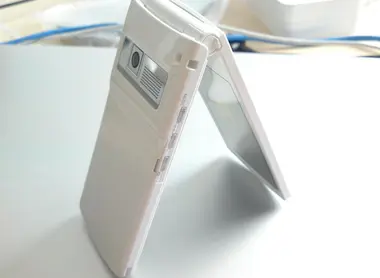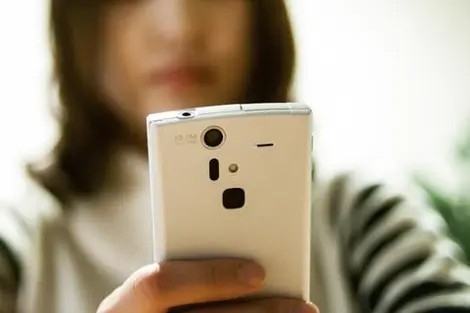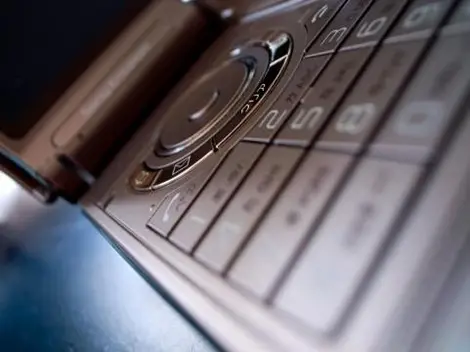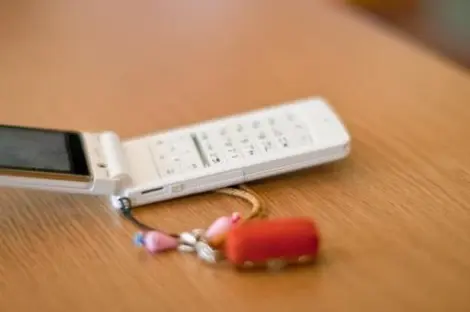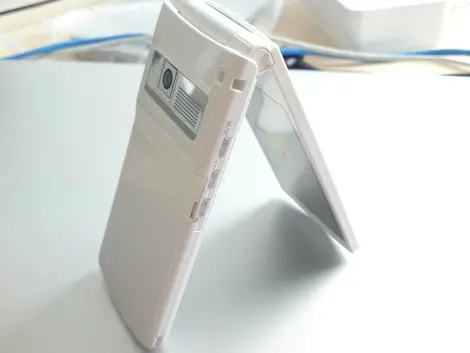Rent a phone in Japan
- Published on : 03/11/2014
- by : La rédaction
- Youtube
Moshi Moshi
When traveling in Japan, staying connected can be problematic, as there is no GSM network, and the international roaming offered by your operator can be very expensive. Making reservations, requesting information or simply consulting Google Maps to find your way around are all reasons why renting a cell phone is particularly useful. This is often the most practical and economical option for communicating effectively during your stay. Discover the different possibilities and tips for staying connected in the Land of the Rising Sun.
Before you leave
Many travelers are unpleasantly surprised to discover that, despite their international rate plan, their phone doesn't work in Japan. There is no GSM network in Japan. Your phone needs to be 3G-compliant to receive and transmit. It is also possible to subscribe to the international roaming service offered by your telephone operator, but this solution is often expensive. In many cases, renting a phone when you arrive in Japan remains the safest and most economical solution!
More and more areas covered by Wi-Fi
The Wi-Fi network in Japan is expanding by the day: many hotels and cafés, such as Starbuck's, are now equipped with Wi-Fi. In the case of hotels, this information is often mentioned at the time of booking, so don't hesitate to ask at reception when you check in. Transport networks and railway stations are also equipped, but sometimes with a rather weak network. With this network access, you'll be able to reach your correspondents using software such as Skype, WhatsApp, Messenger, etc. The Japan connected Free Wifi application lets you connect to available hot spots.
Read: Ten advantages of being connected in Japan
Why rent a phone in Japan rather than use your own?
Many travelers have the unpleasant surprise of discovering that, despite their international plan, their phone doesn't work in Japan. There is no GSM network in Japan. Your handset must meet the minimum 3G standard to receive and transmit. The frequencies used are specific: bands 1 (2100 MHz) for 3G and 4G, and for 5G, bands such as n3 (1800), n77 (3700) and n78 (3500).
Even if your phone is compatible, roaming charges are prohibitive. For example, with a standard French package, the cost can be as high as €13.31/MB with Orange, €13.20/MB with SFR, €10.24/MB with Bouygues and €9.70/MB with Free. Simply accessing Google Maps to find your hotel could cost you several dozen euros! For calls, expect to pay between €2.30 and €2.90 per minute. So renting a phone locally is often the cheapest alternative.
Options for staying connected in Japan
There are several ways to stay connected during your trip to Japan:
1. Rent a Japanese prepaid phone: Ideal if you need to make regular calls. You'll receive a handset with a Japanese number and will be able to make local and international calls. Phones can be picked up at the airport or delivered to your hotel. Suppliers such as Softbank Global Rental and G-Call offer this service.
2. Buy a SIM-data card: If your phone is unlocked (de-locked), you can buy a sim-data card to insert into your handset. Several formulas are available: 15 days, 1 month or 2 months with different amounts of data. This option is convenient for accessing the Internet, but generally does not provide a Japanese telephone number.
3. Rent a pocket WiFi: This small portable router lets you rent a pocket WiFi to connect several devices simultaneously. Ideal for groups or families, it offers an Internet connection wherever you go, with a battery life of around 12 hours. Prices range from €50 for 8 days to €142 for a month.
4. Use free WiFi networks: Japan has a growing network of free WiFi zones in hotels, cafés, restaurants, stations and public spaces. The Japan Connected Free WiFi app makes it easy to connect to available hotspots. However, these connections may be limited or unstable, especially in rural areas.
Comparison of cell phone rental services
Here's a comparison of the leading phone rental providers in Japan:
- Softbank Global Rental: One of Japan's largest operators, present at all international airports. Offers modern smartphones with excellent network coverage, especially in urban areas. Prices slightly higher than the competition, but reliable service.
- G-Call: Renowned for its competitive prices and presence in many airports. Offers hotel delivery and flexible packages. Easy-to-use English interface.
- EasyGo Japan: Rental service with hotel or airport delivery. Rates start at ¥600/day (approx. €3.80), with discounts for long-term rentals (¥398/day for 30 days). International calls are charged at ¥30/minute.
In terms of network coverage, NTT Docomo is recommended for car rental travelers because of its good nationwide coverage, while Softbank is better suited to urban areas but less efficient in the countryside.
The rental process: booking, collection and return
Booking: It's generally advisable to book your phone in advance via the Internet. Some companies offer discounts for early bookings. You'll need to indicate your travel dates, choose your phone model and pick-up location (airport or hotel).
Documents required: To rent a phone, you'll need to present :
- Identification (passport)
- A credit card (please note that some companies do not accept French debit cards)
Collection: Most rental companies have kiosks at major airports (Narita, Haneda, Kansai, etc.) where you can collect your phone. Some of them can provide you with a handset on the same day without prior reservation, but the wait can be longer.
Operation: Once you've picked up your phone, it's ready to use. Instructions are usually provided in English and sometimes in French.
Return: At the end of your stay, you'll need to return the phone to the rental point or, in many cases, mail it back using a prepaid envelope provided at the time of rental. Simply drop this envelope into any Japanese post box before you leave.
Rates and costs for smartphone rental
Rates for renting a phone in Japan generally break down as follows:
1. Daily rental fee: Between 200 and 600 yen (€1.25 to €3.80) per day. Tapering rates are often offered for long-term rentals. For example:
- ¥600/day for daily rentals
- 520/day for 9 days or more
- ¥398/day for 30 days (a total of ¥11,940, around €75)
2. Communication costs:
- Incoming calls: generally free
- Local outgoing calls: between ¥60 and ¥200/min (€0.38 to €1.25)
- International calls: between 100 and 500 yen/min (€0.63 to €3.15)
- SMS and e-mail: chargeable (rates vary according to operator)
3. Additional charges:
- Postage and return postage: approx. ¥1,000 (€6.30)
- Insurance (optional but recommended)
To optimize your budget, remember to book in advance to take advantage of discounts, and if possible, choose a package that includes unlimited data to avoid the extra costs associated with data consumption.
Specific advantages of phone rental in Japan
There are many advantages to renting a phone in Japan:
Local Japanese number: Having a Japanese number facilitates your contacts with local accommodation, restaurants and services. The Japanese often prefer phone calls to emails for last-minute bookings.
Free incoming calls: Unlike international roaming, where receiving calls is charged, incoming calls are generally free on phones rented in Japan.
Internet access: There are many advantages to being connected in Japan, such as checking train timetables in real time, using translation apps, or searching for recommended restaurants nearby.
Long-lasting battery: Rental phones are often equipped with new batteries or batteries in good condition, guaranteeing optimal autonomy during your long days of exploration.
Easy to use: No complex configuration or installation required, so you can start using the phone as soon as you receive it.
Save on roaming charges: Avoid surprise bills for international roaming, which can reach considerable amounts even for moderate use.
Practical tips to optimize your phone experience in Japan
Prepare your trip: Reserve your phone or connectivity solution in advance, especially if you're traveling during a busy tourist season such as cherry blossom or autumn leaves.
Download useful apps before you leave:
- Japan Connected Free WiFi to locate free hotspots
- Google Maps with offline maps of Japan
- Translation applications like Google Translate with the offline Japanese pack
- Transport apps like Japan Transit Planner
Save battery power: The days spent visiting Japan are often long and intense. Carry an external battery (power bank) to recharge your phone when needed.
Combine solutions: If you're traveling in a group, consider renting a pocket WiFi for Internet and a phone for calls, to be shared by all.
Use messaging apps like Line (very popular in Japan), WhatsApp or Messenger to communicate for free when connected to WiFi.
Deactivate data roaming on your personal phone as soon as you arrive in Japan to avoid accidental roaming charges.
Protect your device: Japan is a safe country, but phones can easily be forgotten or damaged while traveling. If possible, take out the insurance offered by the rental service.
By following these tips and choosing the right solution for your needs, you'll be able to make the most of your stay in Japan, while staying connected easily and without unpleasant financial surprises on your return.
